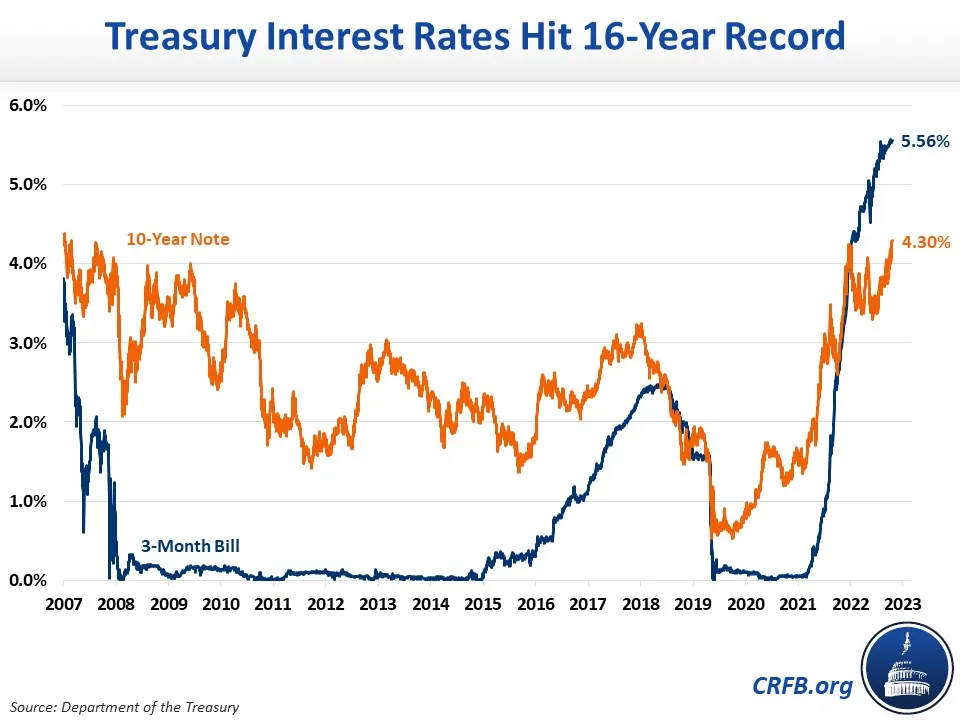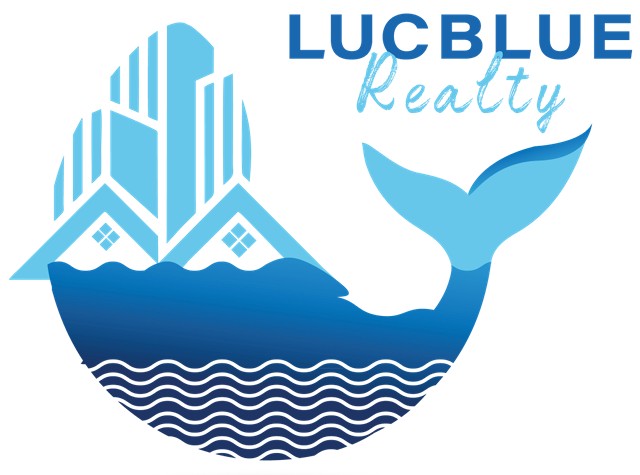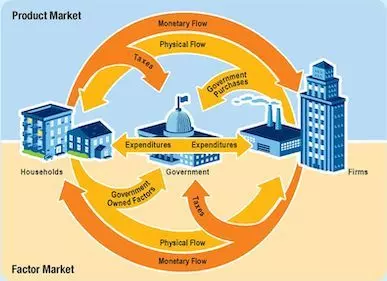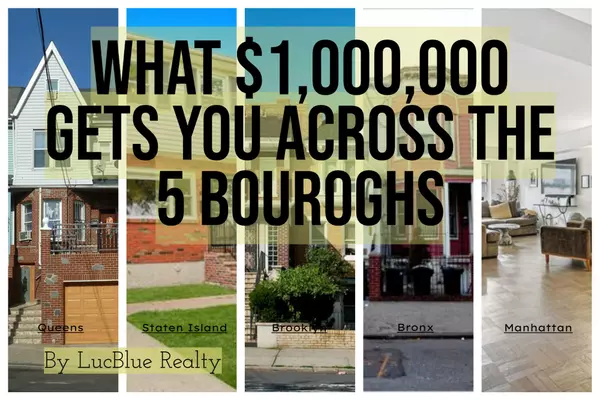Beyond the Headlines: Why Many Real Estate Agents Are Struggling in Today's Market (And How to Navigate It)

Beyond the Headlines: Why Many Real Estate Agents Are Struggling in Today's Market (And How to Navigate It)
The real estate market has been a rollercoaster over the past few years. We saw unprecedented highs during the pandemic, with bidding wars and rapid sales becoming the norm across New York City and the nation. Now, however, the landscape has undeniably shifted. While news headlines often focus on property values and sales volumes, a significant, often unspoken, story is unfolding within the industry itself: why are so many real estate agents struggling to thrive, or even survive, in today's environment?
At LucBlue Realty, operating across all five boroughs of NYC, we observe these shifts firsthand. We understand that the current challenges aren't merely a typical market downturn; they represent a complex confluence of economic pressures, fundamental industry changes, and evolving consumer behaviors. This isn't just about fewer transactions; it's about a recalibration of the entire real estate ecosystem. Understanding these underlying reasons is crucial, not only for agents navigating their careers but also for buyers and sellers who need to select an agent capable of truly delivering results in this new reality.
In this blog post, we'll peel back the layers to examine the primary factors contributing to the struggles faced by many real estate professionals in NYC and across the U.S., and offer insights into what it takes to succeed in this evolving market.
The Economic Headwinds: Interest Rates and Affordability
Perhaps the most immediate and impactful force reshaping the current real estate market, directly affecting agent livelihoods, comes from macroeconomic shifts – primarily, the rapid rise in interest rates and the persistent affordability crisis.
High Interest Rates: The Cooling Effect
For years, historically low interest rates fueled a frenzied buying environment, making monthly mortgage payments more manageable even as home prices soared. The Federal Reserve's aggressive rate hikes to combat inflation have abruptly changed this dynamic.
- Impact on Buyer Affordability: Higher mortgage rates directly translate to significantly higher monthly payments for borrowers. A buyer who could afford a $700,000 home at a 3% interest rate might now only be able to afford a $500,000 home at a 7% rate, shrinking their purchasing power considerably. This immediately disqualifies a segment of potential buyers and forces others to significantly lower their budgets, leading to fewer viable transactions for agents.
- The "Lock-in" Effect: Many existing homeowners capitalized on the low-rate environment, refinancing their mortgages to rates well below current levels. This creates a powerful disincentive for them to sell. Why trade a 2.5% mortgage for a 7% one? This "lock-in" effect drastically limits the inventory of homes available on the market, meaning fewer properties for real estate agents to list and sell.
- Result: Fewer Transactions, Reduced Commissions: With fewer qualified buyers and less available inventory, the overall volume of real estate transactions has plummeted compared to the boom years. For agents whose income is almost entirely commission-based, fewer transactions directly equate to significantly reduced earnings and increased financial pressure.
The Persistent Affordability Crisis (Exacerbated in NYC)
Even as interest rates have tempered home price growth in some areas, the underlying affordability crisis remains a significant hurdle, particularly in high-cost markets like New York City.
- Stubbornly High Home Prices: While national home prices have seen some adjustments, in resilient markets like NYC, prices often remain elevated due to strong demand fundamentals and limited supply. This means that even with a slight price dip, the combined effect of high prices and high interest rates makes homeownership feel out of reach for many.
- Rising Cost of Living: Beyond housing, the general cost of living – from groceries to transportation – continues to rise. This eats into potential homebuyers' savings and disposable income, making it harder to accumulate down payments and cover closing costs, further narrowing the pool of eligible buyers.
- First-Time Buyer Squeeze: This combination hits first-time homebuyers the hardest. They often lack equity from a previous sale and are more sensitive to monthly payment fluctuations. As we discussed in our "Cracking the Code" blog, navigating these financial challenges requires immense effort and expert guidance, adding to the complexity of closing a deal for agents.
These economic headwinds create a challenging sales environment where agents must work harder for fewer transactions, making it difficult for many to sustain their businesses.
Industry-Shaking Changes: The NAR Settlement and Commission Shifts

Beyond the broader economic landscape, the real estate industry is undergoing profound structural changes that are directly impacting how agents operate and earn their income. Chief among these is the recent National Association of Realtors (NAR) settlement.
The NAR Lawsuit and Settlement: A Game Changer (Effective August 17, 2024)
For decades, a standard practice in real estate involved sellers offering compensation to a buyer's agent directly through the Multiple Listing Service (MLS). A series of lawsuits challenged this practice, culminating in a significant settlement by NAR that will fundamentally alter how commissions are handled, effective August 17, 2024.
- Elimination of Mandatory MLS Offers: The most significant change is the prohibition of listing brokers offering compensation to buyer agents on the MLS. This doesn't mean sellers can't pay a buyer's agent's commission; it just means it can no longer be a blanket offer advertised on the MLS. Compensation for buyer agents will now be a direct negotiation between the buyer and their agent.
- Direct Negotiation and Buyer Agreements: This shift means buyer agents will need to enter into written agreements with their buyer clients before touring homes. These agreements will clearly outline the agent's services and how they will be compensated (e.g., flat fee, hourly rate, a percentage of the sale price, or a concession requested from the seller). This increased transparency, while beneficial for consumers, places a new onus on buyer agents to articulate their value proposition more explicitly.
- Impact on Buyer Agent Fees: For many buyers, especially first-time purchasers who previously didn't "see" this cost as it was built into the sale price and paid by the seller, the buyer agent's fee may now appear as an added upfront expense. This could lead to more buyers questioning the need for an agent or potentially attempting to navigate purchases unrepresented, adding new layers of complexity for agents and risk for buyers.
- Potential Commission Compression: While still unfolding, experts predict a potential for overall commission compression as negotiation becomes more direct and transparent. This directly impacts an agent's take-home pay per transaction.
Increased Transparency & The Value Proposition
These changes accelerate a trend towards greater transparency in real estate transactions. Agents can no longer rely on customary practices; they must now clearly demonstrate their value in every interaction. Those who cannot articulate their expertise, negotiation skills, market knowledge, and client-centric approach will find it increasingly difficult to secure business.
Industry Exodus: As a result of these seismic shifts, many predict an exodus of less experienced or less adaptable agents from the profession. The market will likely become even more competitive among agents themselves, favoring those who can demonstrate clear value and navigate new compensation models.
Supply & Demand Imbalances (Regional Nuances)
While interest rates and the NAR settlement are broad strokes affecting the entire industry, the specific dynamics of supply and demand also play a critical role in an agent's day-to-day struggles, often with unique regional nuances.
Overall Low Inventory (Especially in NYC's Desirable Markets)
Despite some national reports of inventory ticking up, many desirable markets, particularly urban centers like New York City, continue to face chronic low housing supply.
- Fewer Homes, Fewer Deals: The fundamental equation for a real estate agent is simple: fewer homes on the market mean fewer opportunities for listings and fewer potential transactions. While high buyer demand exists, if there's nothing to buy, deals can't happen.
- Seller Hesitation: The "lock-in" effect from low interest rates, as discussed earlier, exacerbates this. Homeowners are reluctant to sell their current homes and lose their favorable mortgage rates, further constricting inventory.
Buyer Hesitation vs. Seller Hold-Out
This creates a standoff:
- Buyers Pulling Back: Facing higher interest rates and persistent high prices, many prospective buyers are pausing their searches, waiting for rates to drop or prices to adjust significantly.
- Sellers Holding On: Those who could sell are often choosing to wait, hoping for a return to peak prices or simply unwilling to part with their low mortgage rates unless absolutely necessary.
The result is a slower transaction volume across the board. Homes that do come to market may sit longer, requiring more effort from agents to market and sell, reducing their turnover and ultimately their income. This dynamic means that agents must be more proactive, more patient, and more strategic than ever before to facilitate transactions.
Agent Saturation and the "Barrier to Entry"

Another significant factor contributing to the struggles of many real estate agents is the sheer volume of licensed professionals in the market, particularly those who entered during the recent boom years.
The Boom-Time Influx: During the frenzied seller's markets of 2020-2022, when homes were selling rapidly and commissions flowed more easily, the real estate industry saw a massive influx of new licensees. The perception was that it was a relatively easy way to make good money. While getting a real estate license requires coursework and passing an exam, the actual "barrier to entry" for succeeding in the field is far higher. Many entered without fully understanding the dedication, continuous education, and significant financial investment (marketing, professional fees, time) required to build a sustainable business.
Survival of the Fittest: Now, as the market cools and the industry faces structural changes, this saturation becomes a critical issue. There are simply too many agents chasing fewer deals. This intensely competitive environment means that only the most skilled, adaptable, and client-focused agents will be able to survive and thrive. Those who lack strong negotiation skills, deep market knowledge, effective marketing strategies, or the resilience to weather slow periods are finding it increasingly difficult to generate consistent income. This weeding-out process, while tough on individual agents, ultimately benefits consumers by raising the bar for professionalism and expertise in the industry.
What This Means for You (The Client) and the Future of Real Estate
[Image Suggestion: A knowledgeable, friendly real estate agent (perhaps a LucBlue Realty agent if you have brand photos) guiding a client, or a compass pointing to success.]
Understanding why so many real estate agents are struggling isn't just an internal industry discussion; it has profound implications for anyone looking to buy or sell property in New York City or across the U.S. In a market where casual agents are faltering, the value of a true professional becomes clearer than ever.
Why Experience and Expertise Are More Critical Than Ever:
- For Buyers: Navigating higher interest rates, understanding complex financing options, finding limited inventory, and crafting winning offers in a competitive landscape demands an agent with deep market knowledge and strong negotiation skills. Furthermore, with the upcoming NAR settlement changes, having an agent who can clearly articulate their value and guide you through new compensation models will be paramount. An inexperienced agent might struggle to secure favorable terms or even find suitable properties in a challenging market.
- For Sellers: Selling a home in a slower, more discerning market requires sophisticated pricing strategies, innovative marketing, and adept negotiation to attract qualified buyers and maximize your return. An agent who understands the current buyer pool and can effectively position your property is invaluable.
The Value of the True Professional: The current market conditions are separating the dedicated, expert real estate professionals from the part-timers or those who entered for quick gains. The agents who will succeed are those who:
- Continuously invest in their education and market insights.
- Are masters of negotiation and problem-solving.
- Prioritize client relationships and transparency.
- Have a robust network of industry contacts (lenders, attorneys, inspectors).
- Can adapt swiftly to new regulations and market dynamics.
LucBlue Realty's Commitment to Excellence: At LucBlue Realty, our deep understanding of these market shifts is foundational to how we operate. We consistently invest in our agents' expertise, ensuring they are not just knowledgeable about properties across Manhattan, Brooklyn, Queens, the Bronx, and Staten Island, but also skilled in navigating the most complex transactions, financing challenges, and competitive scenarios. We believe that in a market where many are struggling, our commitment to unwavering client advocacy, strategic thinking, and transparent communication sets us apart. We are here to simplify the complexities, overcome the hurdles, and deliver exceptional results, proving the irreplaceable value of a truly professional real estate partner.
Ready to Navigate NYC's Market with Confidence?

Whether you're a first-time buyer looking to understand your options, a seller strategizing your next move, or simply seeking clarity on today's real estate landscape, choosing the right partner is more crucial than ever. Don't let market complexities or industry shifts deter your real estate goals. Contact LucBlue Realty today to schedule a personalized consultation. Let our experienced team guide you through every nuance of the NYC market, ensuring your success in any environment. Your confident real estate journey begins with a conversation.
Categories
Recent Posts












